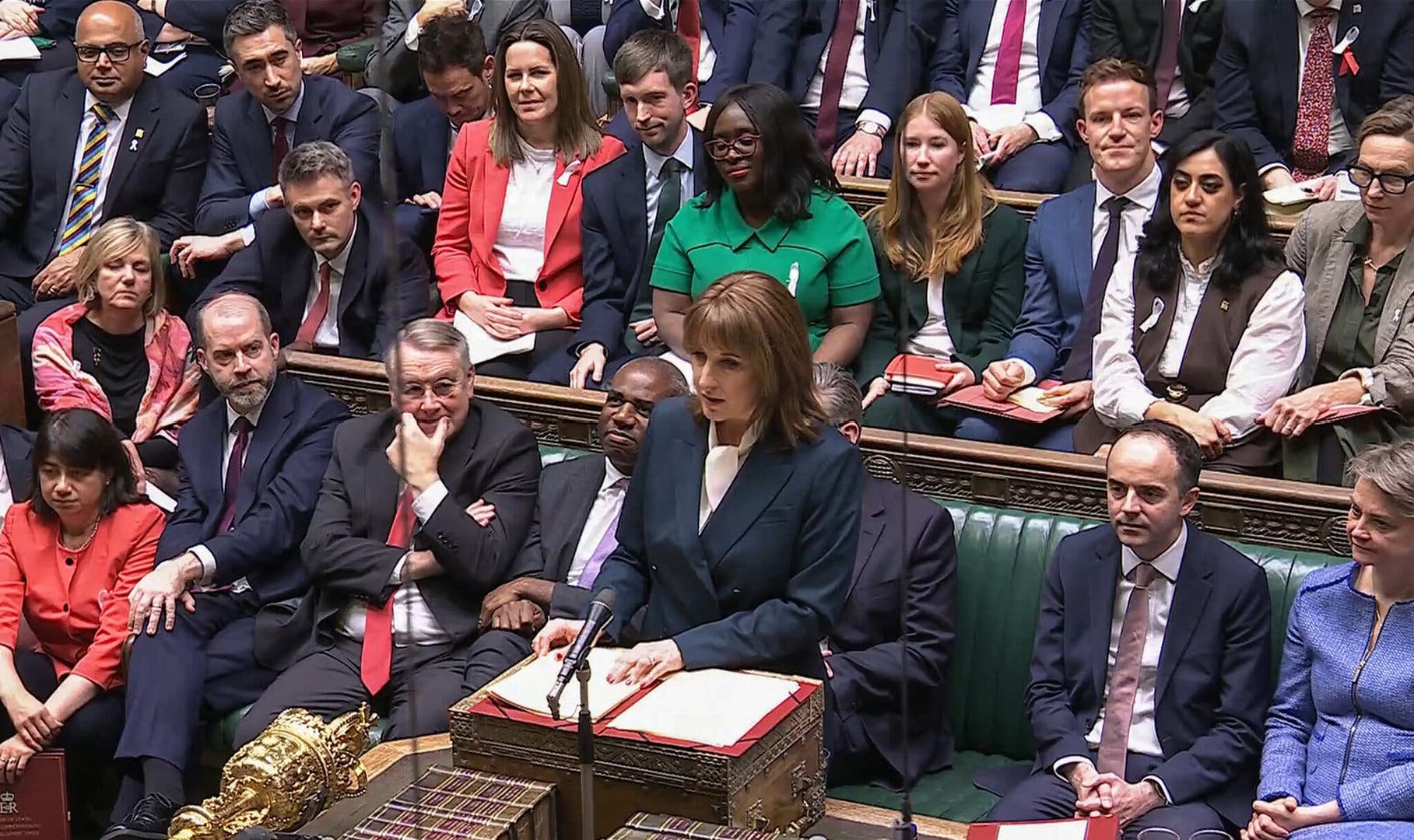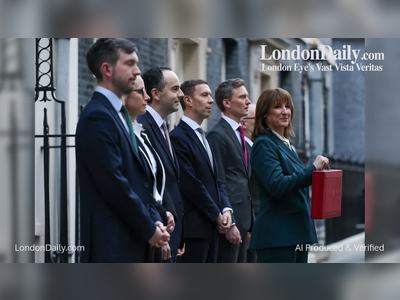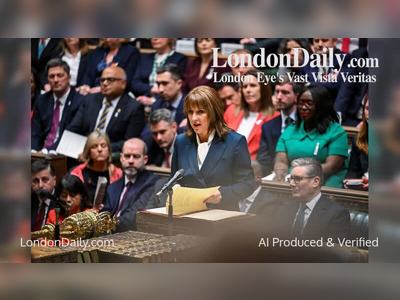
UK Budget Raises Taxes by More Than £26 Billion as Reeves Seeks Fiscal Stability
Chancellor Rachel Reeves unveils sweeping tax hikes to shore up public finances amid weak growth and high spending demands
British Chancellor of the Exchequer Rachel Reeves yesterday unveiled a package of tax increases projected to raise roughly £26 billion annually by 2029–30, intensifying a broader effort to stabilise the country’s public finances amid a challenging economic backdrop.
The fresh measures come just a year after her previous budget imposed what was then the biggest tax rise in decades.
The new budget freezes income-tax thresholds through 2031, which will gradually draw more earners into higher tax bands as wages rise with inflation.
It also introduces new levies including a “mansion tax” on homes valued over £2 million, and raises dividend taxes.
At the same time, planned reforms to pension tax relief will cap tax-free contributions, and duties on gambling and other forms of investment income will increase.
To help fund social and welfare programmes, the government is also repealing the two-child benefit cap and expanding certain public-spending commitments — moves designed to ease pressures on households amid rising living costs.
But despite some relief measures, the tax burden is now forecast to rise to around 38.3 percent of GDP, the highest level in decades.
Markets reacted with a sharp rally in government bonds and a stronger pound, reflecting investor approval of the increased “fiscal headroom” — now estimated at about £22 billion over the coming years.
Commentators noted that the mix of tax rises and fiscal tightening was structured so as to avoid destabilising borrowing costs while allowing for sustained public-service funding.
Critics warn, however, that the burden on households and small investors may grow significantly as hidden tax increases bite over time.
The freezing of tax thresholds acts like a stealth rate rise — steadily increasing liabilities as incomes rise with inflation.
Business groups and higher-earners are likely to bear the brunt of the changes, while some warn that economic growth could be further squeezed.
Reeves defended the package as a necessary step to “lock in fiscal stability, protect public services and shield the country from future shocks.” With economic growth forecasts downgraded and pressure mounting on public debt and borrowing costs, the 2025 budget represents a gamble on steady finances over political popularity — a bet that will test both the taxpayer and the Chancellor’s credibility in equal measure.
The fresh measures come just a year after her previous budget imposed what was then the biggest tax rise in decades.
The new budget freezes income-tax thresholds through 2031, which will gradually draw more earners into higher tax bands as wages rise with inflation.
It also introduces new levies including a “mansion tax” on homes valued over £2 million, and raises dividend taxes.
At the same time, planned reforms to pension tax relief will cap tax-free contributions, and duties on gambling and other forms of investment income will increase.
To help fund social and welfare programmes, the government is also repealing the two-child benefit cap and expanding certain public-spending commitments — moves designed to ease pressures on households amid rising living costs.
But despite some relief measures, the tax burden is now forecast to rise to around 38.3 percent of GDP, the highest level in decades.
Markets reacted with a sharp rally in government bonds and a stronger pound, reflecting investor approval of the increased “fiscal headroom” — now estimated at about £22 billion over the coming years.
Commentators noted that the mix of tax rises and fiscal tightening was structured so as to avoid destabilising borrowing costs while allowing for sustained public-service funding.
Critics warn, however, that the burden on households and small investors may grow significantly as hidden tax increases bite over time.
The freezing of tax thresholds acts like a stealth rate rise — steadily increasing liabilities as incomes rise with inflation.
Business groups and higher-earners are likely to bear the brunt of the changes, while some warn that economic growth could be further squeezed.
Reeves defended the package as a necessary step to “lock in fiscal stability, protect public services and shield the country from future shocks.” With economic growth forecasts downgraded and pressure mounting on public debt and borrowing costs, the 2025 budget represents a gamble on steady finances over political popularity — a bet that will test both the taxpayer and the Chancellor’s credibility in equal measure.










